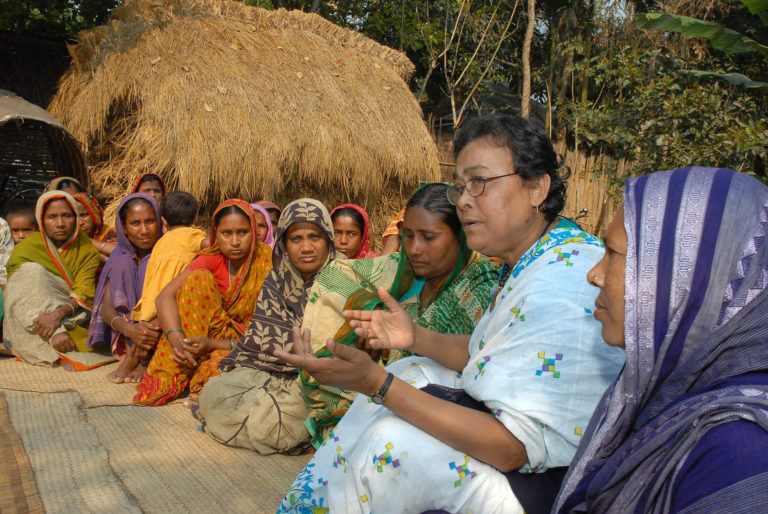Women’s impact in decision-making: From kitchens to state houses and everywhere in between

Credit: FHI360
When we think of “strengthening women’s political participation and decision-making power,” most of us probably conjure up ideas of famous women making significant impact through the highest offices: Ellen Johnson Sirleaf; Benazir Bhutto; Chandrika Kumaratunga; and the two-dozen-or-so other women who have led their countries. Others may think of countries like Rwanda where over 30% of government representatives are female, courtesy of the country’s gender quota mandate passed in 2003. However, the extent to which policies such as gender quotas are substantive, rather than merely symbolic, is still highly debated among scholars. Where women have only symbolic but no real power, trust between the government and its constituents may erode. Moreover, there is no guarantee that female politicians will represent women’s interests, especially if politicians are wealthy elites and their constituents are not. Even in Rwanda, female politicians have yet to push through a suite of policies that improve women’s lives, and in some cases, they have supported policies that do the opposite. For example, they approved a labor bill that reduced maternity leave from eight to two weeks and increased the length of the overall work week.
However, women don’t need to hold office to participate in politics or to engage in decision making that moves their families, communities, and countries forward. For example, having worked in peacebuilding since 2002 and countering violent extremism (CVE) since 2008, we’ve seen the extent to which women participate in politics and make decisions at every level of society and the enormous impact this can make toward peace. From the women’s grassroots organizations that helped bring about peace negotiations to end the Liberian civil war to mothers against jihad – a loose consortium of women’s groups that work to keep their children away from violent extremism (VE) – it is often women working at very micro levels that have a big impact, even if the rest of the world never learns of these efforts.
To highlight a current example of how women are working within their community, or at an even more micro level inside their family units, we look toward recent reporting from Afghanistan. Despite persistent stereotypes of Afghan women as illiterate, submissive agents of their husbands, Afghan women are playing a key role in ending the war with the Taliban. In Kunduz Province, for example, women run radio stations where they share peace messages and communicate public concerns to officials. Afghan women are also working locally, nationally, and internationally to reclaim their traditional roles as peacemakers, as seen in the third international symposium meeting in Kabul in 2017 in which women from all 34 provinces attended to share their perspectives, opinion and thoughts in order to help strengthen democracy, trust and inclusive political participation.
Strengthening women’s political participation and decision making in the highest government positions is important. And indeed, the world has a long way to go. In the United States, only 19.8% of our elected legislators in the current Congress are female. However, we should not forget the heroic and unsung efforts that women make every day at every level of society and do what we can to support their efforts as much as we support improving official representation.


